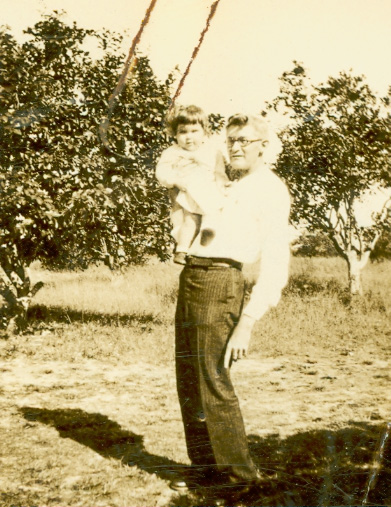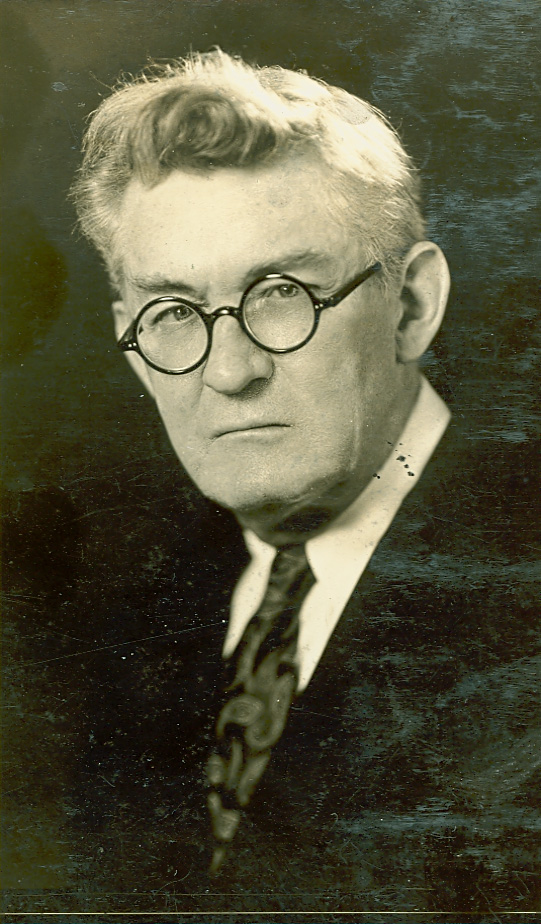Thomas Pearce Bailey (1867-1949):
Professor of Ethology and Psychology“A golden personality,” Dr Bailey explained, “must be honest and sincere. He must have the mental and intellectual courage of a citizen, sportsman, gentleman, and practical idealist, and must show an honest liking and respect for his fellowman.”[1] As Bailey spoke to the crowd of Rollins students, those in the audience couldn’t help but smile and think that the person standing before them was the epitome of just that.
Thomas Pearce Bailey began his
life as an outstanding citizen on August 18, 1867. Born in Georgetown,
South Carolina Bailey remained in his hometown to receive a formal
education. In 1887, he graduated with an Artium Baccalaureatus
degree from South Carolina College, and then two years later, with a Master
of Arts degree from the University of South Carolina. Bailey remained at
the College for another two years, and in 1891, became the first graduate of
USC to earn a Ph.D. After graduation, Bailey began his long and
distinguished career both as a psychologist and educator. He spent a year
at Clark University as a fellow before returning to South Carolina in 1893
to serve as a principal to an elementary school. Bailey then became an
assistant professor of education to the University of California and the
University of Chicago. Following his departure from Illinois in 1903,
Bailey relocated down South, where he served as professor of psychology and
education to the University of Mississippi. During this time, Bailey also
authored Race Orthodoxy in the South and Other Aspects of the Negro
Question (1914), a book in wh ich
Bailey stated "his beliefs
in the Christian and democratic equality and the immeasurable worth of each
human soul in the eyes of God."[2] Since it's publication, however, Bailey's work has been criticized for its strong racism by making alleged biological distinctions between races that would justify discriminations against African American's in the South.
ich
Bailey stated "his beliefs
in the Christian and democratic equality and the immeasurable worth of each
human soul in the eyes of God."[2] Since it's publication, however, Bailey's work has been criticized for its strong racism by making alleged biological distinctions between races that would justify discriminations against African American's in the South.
By 1926, Bailey held several other positions, including superintendent of schools for Memphis, Tennessee, investigator for New York’s Bureau of Municipal Research, dean of All Saints Episcopal Church, cooperate lecturer for Mississippi schools and colleges, professor of philosophy and as consulting psychologist to a Mississippi insanity hospital.
In 1926, Hamilton Holt, the President of Rollins College, began his search for someone with such a resume. Later that year, President Holt found the perfect fit, appointing Bailey as the first professor in history to the title of professor of ethology. Bailey immediately received repute for his unusual tactics towards teaching the subject, where he eliminated traditional lectures and recitations, and instead opted for discussion and individual conferences between the student and instructor.[3] Because of his reputation, President Holt offered Bailey’s services to the state, causing Bailey to establish an evitable record in Florida as a consulting psychologist and as a teacher. In 1938, Bailey retired from the College, pronouncing that after fifty years in education, his, “teaching had been secured at Rollins College, and only the conference plan could account for such results.”[4] Later that year, the College awarded Bailey with the Rollins College Decoration of Honor for his involvement with the community, the College, and more importantly for gracing those around him with his honest, sincere, and golden-like personality.
Bailey spent the remainder of lifetime in Winter Park until his death on February 7, 1949.
-Alia Alli
[1] Phoebe Laing Mosley, “He Develops Golden Personalities,” The Macon Telegraph, April 14, 1929.
[2] R.H. Dabney, “Race Orthadoxy in the South and the Other Aspects of the Negro Question,” Sewanee Review, 1915, p 378.
[3] “New Education System Is Told To Rotarians,” The Ventura Daily Post, July 11, 1934.
[4] Ibid.
